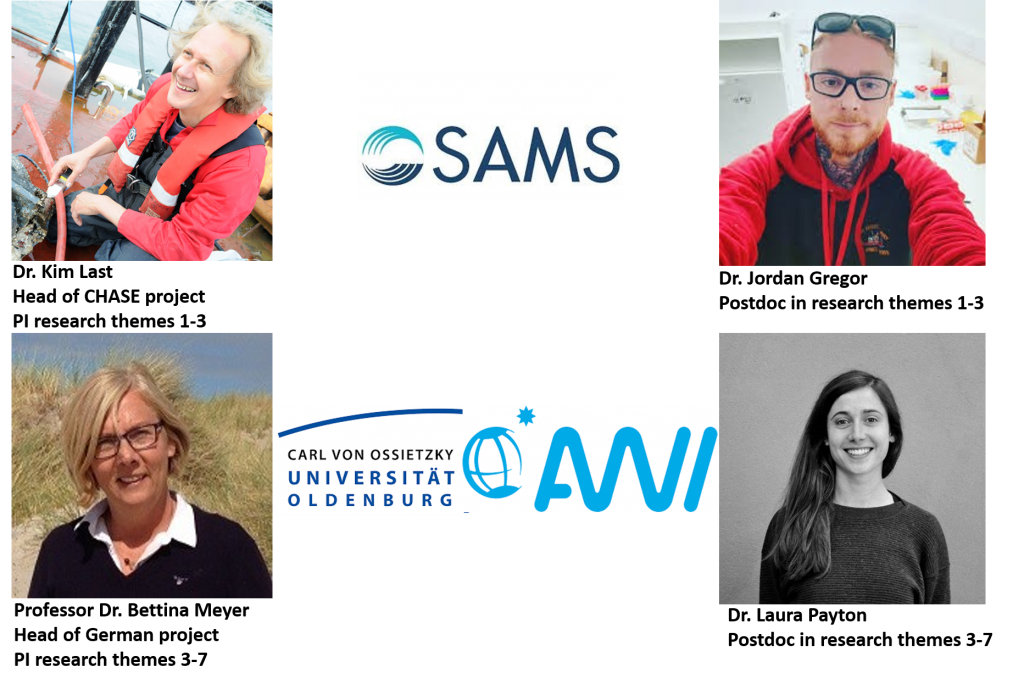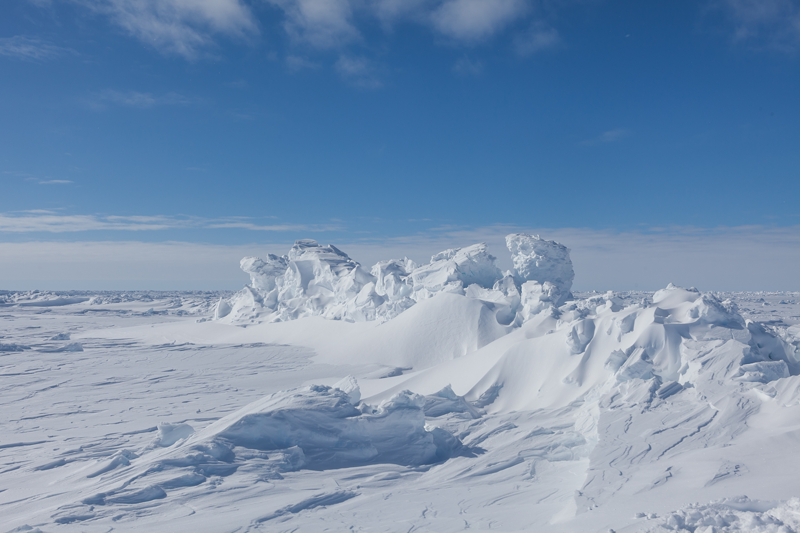Rational: CHASE is a joint funded project by NERC and the BMBF within the frame of the NERC Changing Arctic Ocean Program

Motivation: As the Arctic Ocean is warming, zooplankton such as copepods and krill are undergoing habitat range extensions polewards. This will result in exposure to new and more extreme day-length (photoperiodic) climates of the higher latitudes, with unknown consequences on fitness. We will therefore aim to investigate the behaviour, physiology and genetic responses of copepods and krill to their natural and new photoperiodic environments. We will focus on the circadian biological clock, central in day-length measurement and in orchestrating key seasonal life-cycle events.
Central hypothesis: Circadian clock rhythmicity, which determines behavioural and physiological responses in copepods and krill, will be disrupted by a changing environment, altering Arctic ecosystem function.
Approach: To understand large scale ecosystem responses to climate change we need to mechanistically understand small scale individual responses of key organisms driving marine ecosystems and their functional biodiversity. High variability between individuals is an indicator for high adaptive capacity of the population to changing conditions. Due to the ecological relevance of key species their individual variability can give an indication of future ecosystem shifts.
Our approach focuses on two Arctic key zooplankton groups Calanus finmarchicus (calanoid copepod) and Thysanoessa inermis (krill). We will:
- characterize the Arctic light climate (spectrum, irradiance) with latitude and season;
- determine individual copepod and krill behavioural phenotypes with latitude and season;
- investigate photoperiod as a diapause trigger in copepods;
- determine the metabolic status of behavioural phenotypes (identified above);
- provide seasonal characterization of gene expression with a focus on clock mechanisms and the influence of light and;
- provide indicator genes characteristic for specific life-cycle events, metabolic processes and environmental conditions as well as genetic timekeeping;
- investigate the effects of light and genetic clock mechanisms on seasonal timing and how the factors may synergistically interact with other environmental and physiological factors
Benefits: The balanced functioning of the Arctic ecosystem is reliant on the success of key zooplankton primary consumers which influence all higher trophic levels, from fish to whales. CHASE aims to understand how such key organisms function in this extreme environment and will develop the predictive tools necessary to assess how climate change will impact their populations in the future. This will be achieved through a combined sampling/experimental/modelling programme, thereby informing future scientific directions, critical in helping manage areas which are rapidly becoming more accessible to increasing resource exploitation. The project is embedded within international Arctic science networks based in the UK, Norway and Germany and will have a legacy of cooperation beyond the lifetime of the funding.
The Chase project is a cooperation project between the University of Oldenburg and Alfred Wegner Institute, Helmholtz Centre for Polar and Marine Research, Germany, and the Scottish Association of Marine Science (SAMS), United Kingdom.
Lead researchers in the CHASE project

